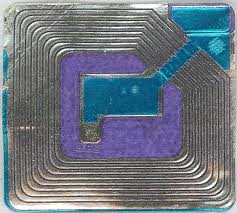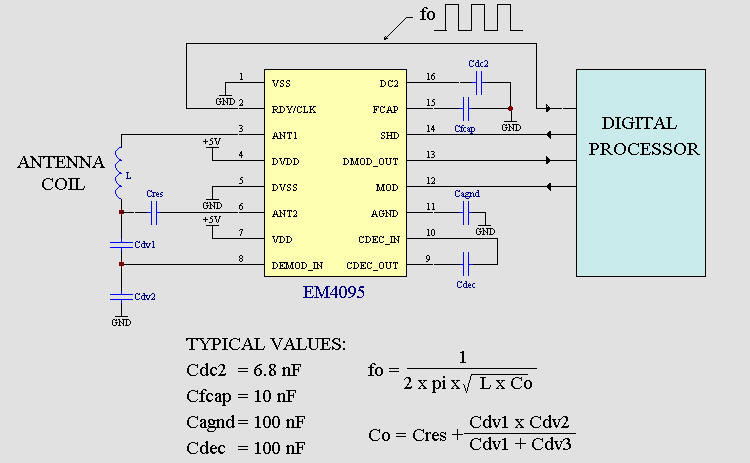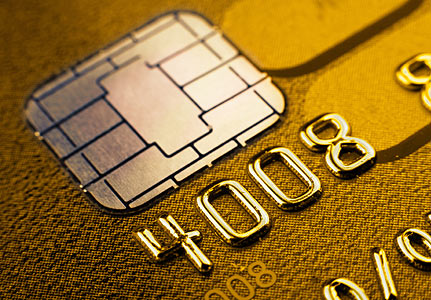The question almost contains its own answer! OR you need to improve the question.
Contact based cards have physical contacts, as shown by Matt.
Non contact cards use some form of electronic "signal" to transfer data. Current credit cards and similar use a technology termed RFID as Matt noted - although with smart cards this is usually used in such close proximity that it is liable to be near-field communications* using magnetic coupling rather than true RF.
Other coupling options for non contact cards could be capacitive (electric field coupling) and even optical is a possibility although not used in mass market applications so far AFAIK.
To the query "is there identification to distinguish between them", the apparently obvious answer is that because they use physically different interface mechanisms they are automatically distinguished by the very act of reading them. That is, a contact based card can only be accessed by a contact technology reader and a non contact card must use the RFID or capacitive or whatever method that the card is based on - so the system is necessarily aware of what is being interfaced with.
RFID interface coil

Typical circuit

EM4095 RFID front end IC overview
EM4095 Read/Write analog front end for 125kHz RFID Basestation - Datasheet
$A6.75/1 in Australia
- Interest only - the Jodrell Bank radio telescope is used for deep space comminications. At the typical frequencies of use the near field of the antenna extends to outside the atmosphere so it is not possible to do RF testing with sample payloads without sending them into space! RFID readers do not have this problem :-).



